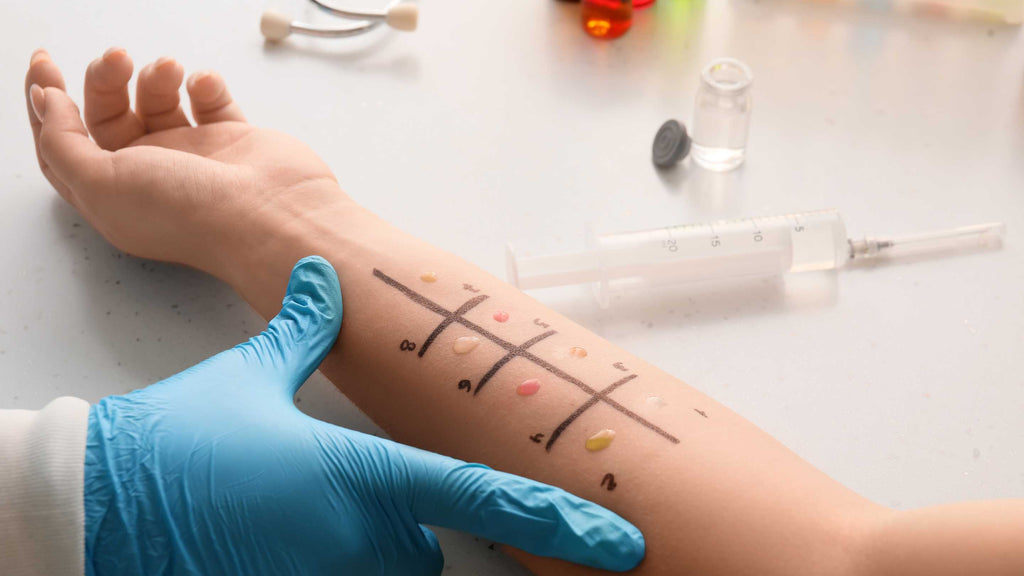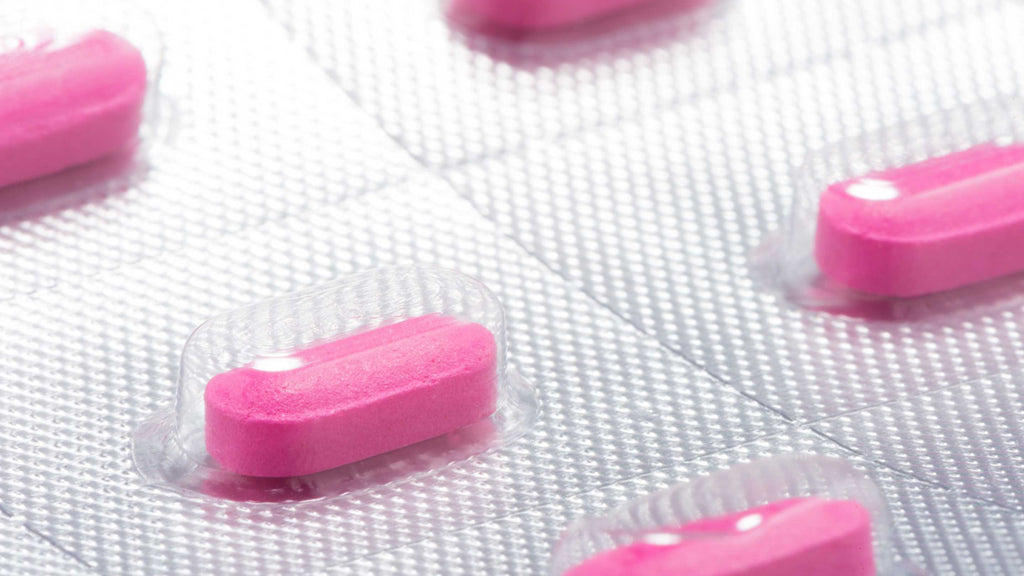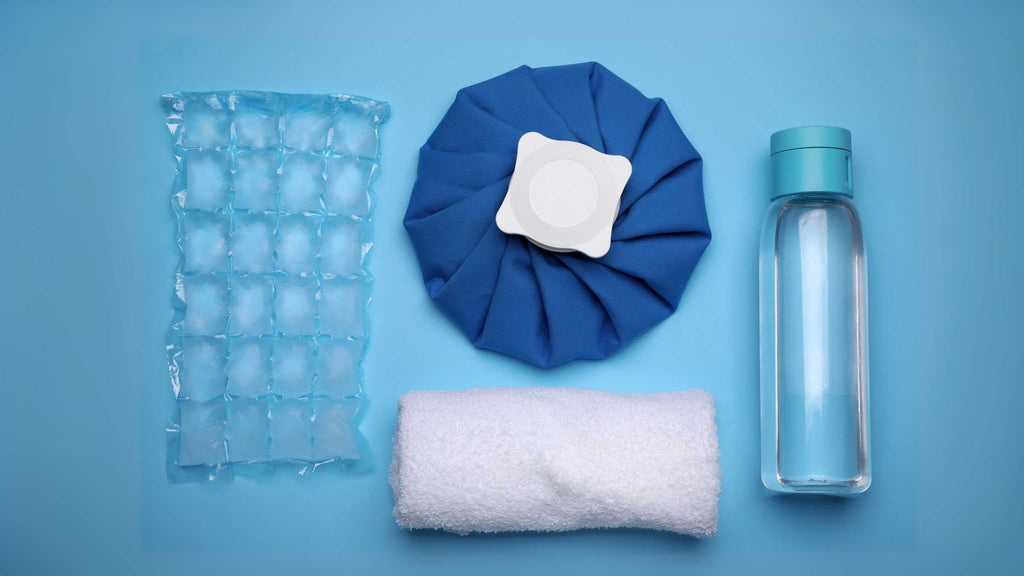If you're living with kidney disease, you probably know the discomfort of incessant itching all too well. This maddening symptom plagues a staggering number of kidney patients, severely impacting their quality of life. But solutions exist to manage and overcome this tormenting itch, especially for those guided by the National Kidney Foundation in their journey with chronic kidney disease.
A 2019 review revealed a sobering truth – up to 84% of those with end-stage chronic kidney disease (ESKD) suffer from itchy skin. Dubbed uremic pruritus or kidney itching, this relentless itch can range from mild to severe, causing significant distress.
In this guide, we'll explore the root causes that may cause itching, common symptoms, and effective strategies to find sweet relief from kidney disease itching. Whether you're battling an itchy scalp, full-body itch, or chronic kidney disease itch, this comprehensive resource will provide invaluable insights and practical tips to cope.
The Itch Explained: Unraveling Kidney Disease Itching
Those with kidney disease experience itching and irritated skin. This is also known as uremic pruritus or chronic kidney disease-associated pruritus (CKD-AP). This refers to that maddening, uncontrollable urge to scratch that plagues those with kidney problems.
The itch can be localized or widespread, tormenting multiple areas of the body. Understanding what causes the itching and symptoms is key to effectively managing and finding respite from this unrelenting discomfort.
Why Kidney Disease Causes the Itch
The link between kidney disease and itchiness lies in the body's impaired ability to filter waste and toxins from the blood.

When kidneys fail, waste products like urea accumulate, triggering intense itching, especially on the skin. Compounding the issue, high blood pressure – a common kidney disease complication – can exacerbate the itch.
This perfect storm of kidney failure and hypertension significantly impacts the skin, leading to dryness, itchiness, and other skin issues common in people with chronic kidney disease.
Grasping these underlying causes, including magnesium imbalance, is crucial for seeking appropriate treatments and relief for those experiencing itching associated with chronic kidney disease.
The Tormenting Symptoms
Itchy skin is a hallmark symptom for those with kidney disease. Beyond the itch, patients often experience dry, cracked skin that fuels the discomfort.
An itchy scalp is a particularly common and distressing complaint. The urge to scratch can lead to unsightly marks and further skin irritation.
These skin manifestations vary from person to person, making it essential to address symptoms individually and find tailored solutions for managing kidney disease itch. As the disease progresses, the skin may itch more frequently or intensely.
Unraveling the Causes: Exploring the Itch Triggers
The causes behind kidney disease itching are multifaceted and complex. An all-over body itch can stem from the kidney issues themselves and the body's immune response to changes in kidney function. Even an itchy back can be linked to kidney problems.
Uncovering the underlying factors and external elements contributing to the itch is key to finding appropriate treatment and relief.

Internal Triggers
Various internal factors are believed to trigger itching in kidney disease patients.
Kidney dysfunction and imbalances in calcium and parathyroid hormone levels can contribute significantly to the itch. In advanced stages, nerve pain and secondary hyperparathyroidism can lead to persistent, full-body itching.
Treating and managing these underlying issues, such as kidney problems and hormone imbalances, can help alleviate the itch and improve overall well-being. An imbalance of nerve signals that leads to itching is another potential cause.
External Influences
Beyond internal factors, external elements can also exacerbate kidney disease itching.
In the early stages, an all-over itch can be influenced by mental health conditions and changes in skin integrity.
Environmental factors like dry weather or exposure to irritants and allergens can worsen the itch. Identifying and addressing these external contributors is essential for finding effective relief.

Diagnosing the Itch: Professional Expertise
Diagnosing itchy skin in kidney disease patients requires a comprehensive evaluation by medical professionals, including a skin exam.
Dermatologists, in particular, play a crucial role in assessing and diagnosing kidney disease itch.
As skin experts, they can identify cutaneous manifestations like an itchy scalp or neck and provide insights into appropriate treatments and management strategies.
Diagnostic tests like blood work, kidney function assessments, and skin biopsies may be necessary to pinpoint the cause and severity of the itch which is common in people with chronic kidney disease.
The Dermatologist's Role
Dermatologists are invaluable allies in the care of kidney disease patients, particularly when it comes to addressing skin-related symptoms like itching. Collaborating with these skin specialists as part of your healthcare team can dramatically improve your quality of life.

Dermatologists offer expertise in diagnosing and treating kidney disease itch, providing tailored treatment options and recommendations for managing the discomfort. Their specialized knowledge and experience make them essential partners in the overall care and well-being of kidney patients.
Diagnostic Tests
Various diagnostic tests are employed to evaluate and diagnose kidney disease itching.
Common tests include assessments of kidney function through blood work to measure waste product levels and renal performance. Skin biopsies or allergen tests may be conducted to identify the root cause of itching and detect any underlying skin conditions.

Urine tests can also reveal insights into kidney function and potential abnormalities.
In some cases, allergy tests may be recommended by dermatologists to identify and manage triggers of kidney disease itch. These diagnostic tools are crucial for determining the cause and severity of itching, allowing for the development of appropriate treatment plans.
Practical Solutions: Finding Sweet Relief
Managing kidney disease itching requires a multifaceted approach, combining medical treatments, lifestyle changes, and self-care techniques.
Addressing itchy, dry skin is essential for finding relief and improving overall well-being. In some cases, a kidney transplant may completely resolve itching, particularly if kidney function is restored.
By understanding and implementing practical solutions, those living with kidney disease can significantly enhance their quality of life and find respite from the relentless itch.
Medically Approved Treatments
Medically approved treatments aim to alleviate itching symptoms and manage the underlying causes. Dialysis treatments, including hemodialysis and peritoneal dialysis, can help remove waste products and reduce itching.
Medications like antihistamines and topical corticosteroids may be prescribed to address skin rashes and irritation.

Additionally, healthcare providers may recommend specific skincare products and emollients to moisturize and protect the skin, minimizing itching and dryness.
These treatments should be tailored to each individual's needs, with close collaboration between patients and healthcare providers to ensure effective management of kidney disease itch.
Lifestyle Adjustments for Relief
In addition to medical treatments, incorporating lifestyle changes as recommended by the National Kidney Foundation can significantly contribute to relief from kidney disease itching.
These changes focus on supporting overall skin health, managing symptoms, and reducing the itch.
Practical lifestyle adjustments include:
- Adjusting your diet to maintain appropriate levels of calcium and phosphorus, under the guidance of a healthcare provider or dietitian.
- Managing renal disease and blood pressure levels through regular monitoring and adherence to prescribed medications.
- Employing relaxation techniques like meditation or yoga to manage stress levels, which can impact nerve signals that lead to itching.
- Regularly moisturizing the skin with gentle, fragrance-free products to alleviate dryness and prevent itching.
- Staying well-hydrated by drinking plenty of water, as dehydration can exacerbate itching and dry skin.

Taking Control: Strategies for Managing the Itch
Controlling kidney disease itching requires a comprehensive approach, involving close collaboration with healthcare providers and implementing strategies tailored to your individual needs. For hemodialysis patients and those with advanced kidney disease, effectively managing itching can significantly improve quality of life.
By working closely with your healthcare team and following professional advice, you can implement control measures such as:
- Regularly attending hemodialysis sessions to optimize care and management of kidney disease symptoms.
- Incorporating fatty acids and other skin-healing nutrients into your diet, either through personalized meal plans or supplements.
- Maintaining open and honest communication with healthcare providers, reporting any changes in itching intensity, and discussing potential treatment adjustments.
- Following a holistic treatment plan that combines medical treatments, lifestyle changes, and the guidance of the National Kidney Foundation to effectively manage kidney disease itching.
- Talk with your doctor or healthcare team to find solutions if itching is severe, affecting your sleep, or impacting your quality of life.
Self-Care Techniques
Self-care techniques play a vital role in managing kidney disease itching and providing relief from symptoms. These techniques, often used in conjunction with medical treatments, can help alleviate itching and improve overall well-being for people with chronic kidney disease.
Self-care strategies include:
- Exploring experimental treatments like phototherapy or UVB therapy. These have shown promise in alleviating itching and managing skin changes. They may also be beneficial particularly for people with chronic kidney disease.
- However, UVB therapy is associated with an increased risk of skin cancer in patients who are on immunosuppressant drugs or have conditions like systemic lupus erythematosus (consult the FDA for latest guidance).
- Avoiding hot showers or baths, as hot water can dry out the skin and exacerbate itching.
- Regularly applying cool compresses to itchy areas for temporary relief and reduced inflammation is a helpful tip for people on dialysis experiencing itching.

- Practicing proper skincare, including gentle cleansing and moisturizing. This helps to maintain skin health and prevent dryness.
- Informing healthcare providers of any side effects or discomfort experienced from treatments, to ensure appropriate adjustments and management of kidney disease itching.
Recommended Skin Care Products
When it comes to managing kidney disease itching, using recommended skin care products can play a significant role in supporting skin health and alleviating itching symptoms.
These products are specifically designed to cater to the unique needs of kidney disease patients, taking into consideration factors such as decreased urine output, skin changes, and compromised immune systems. By using high-quality, dermatologist-recommended products, you can maintain skin integrity, reduce the risk of skin-related complications, and find relief from itching and dryness.
Consult with your healthcare providers and dermatologists for personalized recommendations based on your specific kidney disease and skin type.
Dermeleve® - The Safer Solution
As you explore various treatment options and skin care products, it's important to consider the safety and effectiveness of these choices.
Many widely available anti-itch treatments contain topical steroids, which can pose risks and side effects, such as skin thinning, increased risk of tearing and infection. Topical steroids also come with the risk of addiction and Topical Steroid Withdrawal.

Dermeleve® offers a safer alternative, providing an effective solution to alleviate itching without harmful effects, ideally suited for people with chronic pruritus, such as that bought on by kidney disease. By targeting itching specifically and without the risk of infection or adverse effects, Dermeleve® provides a fast-acting, gentle and reliable option for managing the itch and improving your quality of life.
The Risks of Traditional Anti-Itch Treatments
Traditional anti-itch treatments, especially those containing topical steroids, can pose risks and side effects for kidney disease patients.
Approximately half of people who use topical steroids experience side effects, ranging from skin thinning and discoloration to increased risk of infection. When applied to larger areas of the body, such treatments can have systemic effects, impacting the entire body.

Additionally, certain topical treatments may contain ingredients that can worsen itching and dryness, particularly for those with kidney disease.
For example, dairy products, a common ingredient in some skincare products, can exacerbate itching and skin irritation.
It's crucial for kidney disease patients to discuss the potential risks and side effects of traditional anti-itch treatments with healthcare providers and explore safer alternatives like Dermeleve®.
How Dermeleve® Provides Relief
Dermeleve® is specifically formulated to address constant itching, such as that experienced by individuals with kidney disease, without the harmful effects of topical steroids like hydrocortisone or cortisol. This dermatologist-recommended treatment targets itching effectively, providing fast relief and improving quality of life.
Dermeleve®'s gentle and nourishing ingredients soothe the skin and alleviate itching symptoms, promoting mental health and overall well-being.
By using Dermeleve®, kidney disease patients can experience relief from constant itching and the distress it causes, all without the risk of side effects that can cause other problems. Dermeleve® is a safe option to treat itching used in patients with chronic kidney disease (CKD) and end-stage kidney disease (ESKD).
Wrap Up
Managing kidney disease itching requires a comprehensive approach that addresses both internal and external factors contributing to the discomfort. While understanding the root causes and seeking medical guidance are crucial steps, incorporating lifestyle changes and using medically approved treatments can offer relief.
Embracing self-care techniques and opting for suitable skincare products like Dermeleve® can provide a safer and effective solution to alleviate itching without harmful effects, especially recommended for people with chronic kidney disease.
By prioritizing your skin health and well-being, you can better cope with the challenges posed by kidney associated pruritus. Remember, seeking professional advice and making informed choices are key to managing this condition effectively.
For more information on how Dermeleve® can help you manage itching related to kidney disease, we encourage you to visit the Dermeleve® site to explore further about Dermeleve® products.
FAQs
Q: What is chronic kidney disease-associated pruritus (CKD-AP)?
A: Chronic kidney disease-associated pruritus (CKD-AP) is the bothersome, persistent itching of the skin experienced by many people living with chronic kidney disease (CKD), especially those nearing or at end-stage kidney disease (ESKD) or people on dialysis.
Q: How common is itching in patients with CKD?
A: Itching is an extremely common issue for patients with kidney disease. The severity can range from mild to severe, significantly impacting quality of life. People with CKD are likely to experience itching as the disease progresses.
Q: What solutions can help relieve itching for CKD patients?
A: There are various treatments available to help alleviate kidney disease itching, such as moisturizing lotions, medications like difelikefalin, gabapentin, or pregabalin, and consulting with your doctor to explore suitable options. Healthcare professionals may also recommend therapies like UVB treatment. Safer options to topical steroids include Dermeleve® skin soothing cream.
Q: Why does itching occur in patients with CKD?
A: The exact causes of itching in kidney disease patients are not fully understood, but it is believed to be related to the buildup of toxins and waste products in the body as kidney function declines. Factors like skin dryness, nerve signals that lead to itching, or underlying conditions may also trigger the itch.
Q: Is itching more common in ESRD or dialysis patients?
A: Yes, itching is a commonly reported and challenging symptom among those with end-stage renal disease (ESRD) as well as patients undergoing dialysis treatment. Open communication with your healthcare provider is crucial for finding solutions to manage the itch.
Q: How can I determine if my itching is related to my kidney disease?
A: If you have chronic kidney disease and experience persistent, unexplained itching, it's important to consult with your doctor or a dermatologist (skin doctor). They can conduct a thorough skin exam, review your medical history, and determine if the itching is associated with your kidney condition, a common issue in people with CKD and ESKD.
Q: What are some common treatments for chronic kidney disease itching?
A: Treatment options may include topical lotions, oral medications like difelikefalin, gabapentin, or pregabalin, addressing any underlying skin conditions, and managing potential contributing factors in consultation with your healthcare provider. Therapies like UVB may also be recommended.
Q: Can itching associated with kidney disease affect sleep or quality of life?
A: Yes, severe or persistent itching can significantly affect quality of life and lead to loss of sleep among other problems for people living with kidney disease. It's important to talk to your healthcare team if itching is impacting your daily life.
Q: Are there any risks with treatments like UVB therapy?
A: While UVB therapy may help alleviate itching, it is associated with an increased risk of skin cancer, especially in patients who are on immunosuppressant drugs or have conditions like systemic lupus erythematosus. Consult the Food and Drug Administration latest guidance before considering this treatment option.
Q: Can extreme temperatures affect kidney disease itching?
A: Yes, extreme hot or cold temperatures can sometimes worsen itching for those with kidney disease. Avoiding very hot showers/baths and dressing appropriately for the weather can help minimize discomfort.
Q: Can itching be worse on certain parts of the body?
A: Itching can affect any part of the body, but some areas like the back, legs or arms may be more prone in kidney disease patients. The itch can also migrate from one side of the body to another.
Q: Are there online communities for kidney disease patients to share their experiences?
A: Yes, there are online forums and support groups where people living with kidney disease can connect, share tips for managing symptoms like itching, and learn from each other's experiences.
Q: Should I talk to my doctor about itching?
A: Absolutely. If you are experiencing persistent or severe itching, it's important to talk with your doctor or healthcare professionals as it may signal progression of kidney disease. They can evaluate the issue and recommend appropriate treatments.
By being informed about chronic kidney disease-associated pruritus and available management options, you can work with your doctor and healthcare team to find relief from this distressing symptom. Don't hesitate to bring up any concerns about itching during your appointments.







